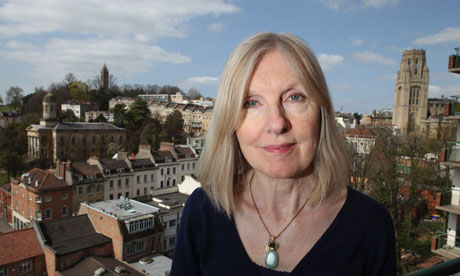
The Rest Is Noise, a festival of 20th-century culture at London's Southbank Centre, continues this weekend with Art of Fear: two days of talks investigating the music and art of oppression and war.
Literary highlights include a talk by Will Self about Franz Kafka and his influence on totalitarian music; a look at Mikhail Bulgakov's Stalin-era satire The Master and Margarita, led by actor and director Simon McBurney (who himself adapted a version of the novel for the stage); a lecture on the political landscape of Europe between 1930 and 1950 from Pulitzer prize-winning author Anne Applebaum; a survey of the political and social upheavals during the same era led by pre-eminent Russian historian Orlando Figes; and a panel of poets and critics reading from and discussing the work of the Russian poets (and victims of Stalin) Anna Akhmatova and Osip Mandelstam.
Another essential talk will be given by Orange prize-winner Helen Dunmore about The Long Shadows of War – billed as a discussion of what "society chooses to memorialise and what to forget in the decades following periods of conflict". I don't want to second-guess this talk – beyond the fact that it should be very interesting, and draw on Dunmore's own explorations of memory in novels such as The Siege. But the root conceit is fascinating and provocative. How far have our memories of the war been curated by an earlier generation?
Far removed from the second world war, today most of us have no idea what has been forgotten – or how much remains in the minds of ageing survivors. Still less do we know about the decisions regarding which version of history was handed to us, and which jettisoned. It's hard to imagine much has been lost when there is so much vivid documentation, both remembered and reimagined. Especially, to return to books, when so much of it has fed into the literature of the postwar world.
The fact is that contemporary cultural life still draws from the terrible upheavals of the 1930s and 40s. It's also an uncomfortable truth that just as war produces beneficial technologies, it also inspires enduring and precious artworks. Evelyn Waugh's The Sword of Honour, Anthony Powell's A Dance to the Music of Time and Lawrence Durrell's The Alexandria Quartet are the first three works that spring to my mind – but you could add hundreds of works to that list.
Hundreds of wonderful, life-altering, uplifting books – all of which have their origins in terror. This is unsettling. Does it mean literary enrichment can come as a direct result of suffering? Are we the war's beneficiaries? But then again, there's cause for hope if so much that is worthwhile and enduring can emerge from such darkness and chaos; so much that speaks to the better part of humanity.
In a spirit of validation, it might be worth trying to compile a list of books inspired by the second world war in the comments below – and maybe adding a few words about why they matter. But we can only do that if we accept that it will be a list without end, as impossible and bewildering to complete as a list of the war's victims.
We might also go for a second list of great late-20th-century novels that haven't been somehow touched by the shadow of the second world war. But off the top of my head … Watership Down? Does that count?

